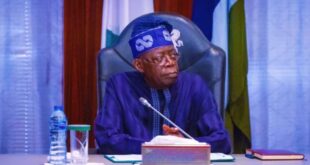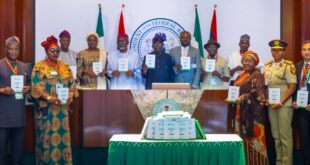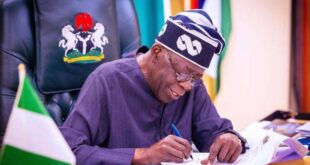The federal government has referred the prolonged strike embarked upon by members of the Academic Staff Union of Universities (ASUU) to the National Industrial Court of Nigeria (NICN) for adjudication. This followed the failure of dialogue between the union and the Federal Ministry of Education.
The government requested an order of the court for ASUU members to resume work in their various universities while the issues in dispute were being addressed by the NICN in line with the provisions of Section 18 (I) (b) of the TDA Cap T8. LFN 2004.
A statement by the Head, Press and Public Relations, Federal Ministry of Labour and Employment, Olajide Oshundun, said the demand was contained in a referral instrument addressed to the Registrar of NICN, dated September 8,2022, and signed by the Minister of Labour and Employment, Senator Chris Ngige.
In the matter billed for mention at 9am today, the federal government asked the NICN to inquire into the legality or otherwise of the on-going prolonged strike by the ASUU leadership and members that had continued even after apprehension by the Minister of Labour and Employment.
It asked the court to interpret in its entirety the provisions of Section 18 LFN 2004, especially as it applied to the cessation of strike once a trade dispute was apprehended by the Minister of Labour and Employment and conciliation was ongoing.
Other requests included that the court should “Interpret the provisions of Section 43 of the Trade Dispute Act, Cap T8. LFN 2004, titled, ‘Special Provision with Respect to payment of wages during Strikes and Lock-outs,’ specifically dealing with the rights of employees/workers during the period of any strike or lock-out.
“Can ASUU or any other union that embarked on strike be asking to be paid salaries even with clear provisions of the law.
“Determine whether ASUU members are entitled to emoluments or ‘strike pay’ during their period of strike, which commenced on February 14, 2022, more so in view of our national law as provided in Section 43 of the TDA and the International Labour Principles on the right to strike as well as the decisions of the ILO Committee on Freedom of Association on the Subject.
“Determine whether ASUU has the right to embark on strike over disputes, as is the case in this instance, by compelling the federal government to employ its own University Transparency Accountability Solution (UTAS) in the payment of the wages of its members as against the Integrated Payroll and Personnel Information System (IPPIS) universally used by the federal government in the nation for payment of wages of all her employees in the federal government Public Service of which university workers including ASUU members are part of or even where the government via NITDA subjected ASUU abd their counterpart UPPPS university payment platform system software to integrity test (vulnerability and stress test) and they failed.”
The federal government further asked the court to determine the extent of ASUU’s demand since the 2020 Memorandum of Action (MOA) that the union signed with government.
The demands included the funding for revitalisation of public universities as per 2009 agreement, Earned Academic Allowances (EAA) payments, state universities proliferation and constitution of visitation panels, and release of white paper on the report of the visitation panels.
The others were the reconstitution of the government renegotiation team for renegotiation of 2009 agreement, which was renegotiated 2013/2014, due for renegotiation 2018/2019, and the migration of ASUU members from IPPIS to its own UTAS, which is currently on test at NITDA.
Meanwhile, as parents and students of Nigeria’s public universities worry that there might be no end in sight to the disagreement between the federal government and ASUU, a report by the Committee on Needs Assessment of Nigerian Public Universities (CNANPU) that was set up by the government to carry out a detailed appraisal of the existing situation in the universities and the requirements for their transformation, revealed that Nigeria’s university system had a manpower crisis.
CNANPU also reported that the physical facilities for teaching and learning in Nigerian universities were inadequate, dilapidated, over-stretched, over-crowded and used beyond their original carrying capacity.
The committee noted, “Academic culture is dying very fast” in the public universities, as “library facilities and services are archaic and comatose (while) many laboratory equipment are only known to students in theory (who) never seen many of them not to talk of using them.”
 The Commerce Africa African Reneissance
The Commerce Africa African Reneissance



